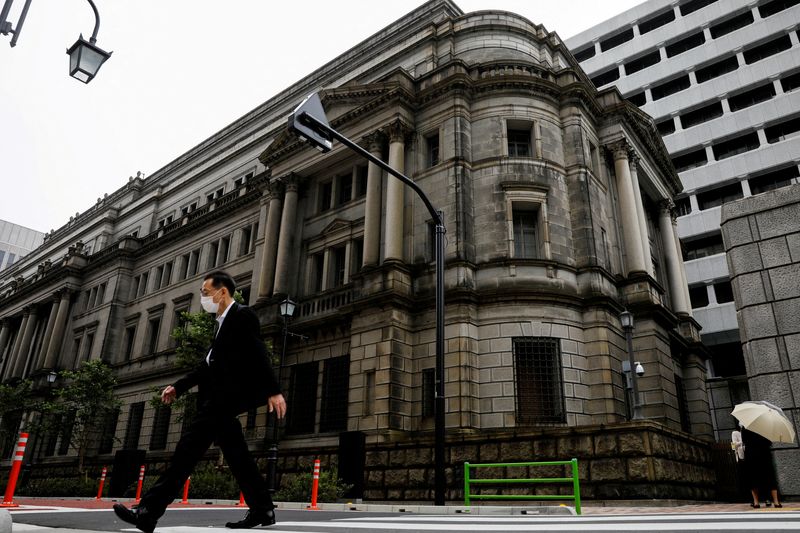By Leika Kihara and Takahiko Wada
TOKYO (Reuters) -The Bank of Japan may downgrade its economic assessment at next week's policy meeting as a spike in Omicron COVID-19 infections dealt a bigger-than-expected blow to consumption, said four sources familiar with its thinking.
The central bank may also warn of heightening economic risks from the Ukraine crisis, which threatens to dent consumption and corporate profits through soaring energy costs, they said.
"After recovering late last year, consumption seems to have slumped as Omicron and coronavirus curbs kept people home," said one of the sources, a view echoed by three more sources.
"The economy didn't do well in the first quarter," and may struggle to gain momentum due to the fallout from the war in Ukraine, a second source said.
At the two-day meeting ending on March 18, the BOJ will thus consider offering a bleaker view on the economy and consumption compared with its previous meeting in January, the sources said.
In January, the BOJ said the economy and consumption were "showing clearer signs of pick-up".
The central bank, however, is likely to keep monetary policy steady next week and put off until a subsequent meeting in April a decision on whether to maintain its forecast that the economy is on track for a recovery, the sources said.
"There's simply too much uncertainty now to gauge the impact on Japan's economic outlook," a third source said. The sources spoke on condition of anonymity because they are not authorised to speak publicly.
The persistent drag from the pandemic and rising commodity costs from the Ukraine crisis have cast doubt on the BOJ's view the economy is likely to improve thanks to continued strength in global demand and an expected rebound in consumption.
Longer run, the BOJ expects robust corporate profits to boost capital expenditure and wages - a view also under threat as soaring raw material costs squeeze corporate profits.

After expanding an annualised 5.4% in October-December last year, Japan's economic growth will likely grind to a near halt this quarter as COVID-19 curbs and supply constraints weigh on a fragile recovery, a Reuters poll showed.
The BOJ will conduct a quarterly review of its growth and inflation projections at its April 27-28 meeting.